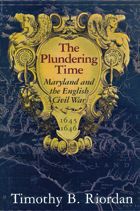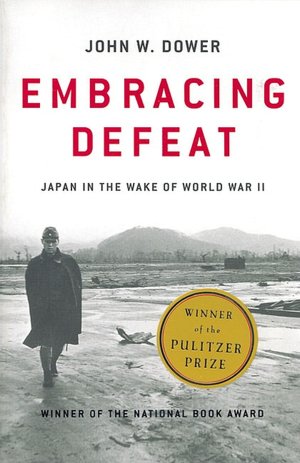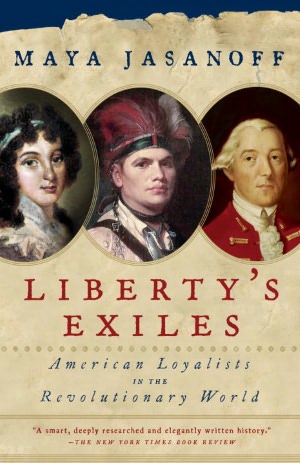Last night 14 people braved the mixed rain and snow to meet at the almost empty Barnes and Noble book store to discuss
The Plundering Time: Maryland and the English Civil War, 1645-1646 by Timothy B. Riordan.
The first colony in Maryland, with only a few hundred colonists, was traumatized by violence during 1645 and 1646. The population dropped from perhaps 800 colonists to a small fraction of that, especially due to the departure of many of the colonists. However forces raised by the Calvert family eventually arrived and regained control of the colony.
We discussed the extreme difficulties faced by the colonists, comparable to those we read about in
Mayflower: A Story of Courage, Community, and War by Nathaniel Philbrick. Colonists had to quickly produce most of the food needed for their survival, and do so facing unfamiliar soils and climate. They had to quickly produce exports, in this case tobacco (again growing a crop that they did not know in England) and competing with Virginians and Dutch and Swedish trading for furs with the Indians. In Maryland, the colonists faced not only raids from Indians, the original occupants of the territory, but from Virginian colonists who resented Cecil Calvert, Lord Baltimore's acquisition of the Maryland colony carved out of the north of the Virginia colony. They were dependent for their very survival on supplies from England, but those supplies came mainly by way of the annual Tobacco fleet, small ships which took 8 to 10 weeks to make the Atlantic voyage each way. Moreover, Parliament, the King and Irish rebels were all issuing
letters of marque allowing private ships to attack and plunder the ships and towns affiliated with the others.
Lord Baltimore had obtained feudal control over the colony, and was able to charter its government, appoint its governmental officials and impose the rule that colonists could only obtain title to land from him or his agents. The colony was established on a manorial pattern, essentially a feudal system with gentlemen plantation owners, indentured servants, and some freemen who were able to obtain their own (smaller) land holdings. On the other hand, Baltimore sought to impose English laws on the colony, including the laws outlawing the Catholic clergy. A Catholic himself, he recruited both Catholics and Protestants for the colony, and they brought with them the religious prejudices that were fueling the English Civil War. We wondered how Baltimore had prevailed upon the Stuart king to grant him so much power over so large a colony; our best guess was that he used his influence with the king while the Parliament was unable to influence the king's decisions. (In one of the many digressions of the discussion, we went into the history of the Calvert family, their rise to wealth and power, and their endowment of the University of Maryland.)
The colonists appear extremely litigious fin the book. They were under stress to survive, divided by religion. They also must have been influenced by the Civil War that had already begun in England. Into this explosive mix entered Captain Richard Ingle, the captain of a trading ship who had been given a letter of marque by the Parliament to attack royalists. Ingle, a Protestant with anti-Catholic prejudice and supporter of the Parliamentary cause in the English Civil War, had traded in the Chesapeake for several years before 1645; he had a grudge against the Maryland colonial government that had been created by the Calverts. He convinced his ship's crew to join him in plundering the Maryland colony's Catholics and recruited Virginian and Maryland Protestant colonists to join in the plunder. We agree in our discussion that it is impossible at four centuries distance to understand the relative weight of his various motives leading to this decision: how important was the profit motive, the grudge, the religious prejudice, and the political motive? How important were these motives in the men who joined him?
Riordan makes a convincing case that the Catholics resisted. The fortified a manor in St. Mary's, fought back against their enemies, and sought to maintain some government functions.
We discussed the Jesuit mission to the Maryland Indians and Lord Baltimore's effort to counteract their influence bringing
secular priests to Maryland. That led us into a discussion of the hierarchies in the Catholic church, of the Anglican church, and of
Episcopal versus Presbyterian policies. We supposed that the Parliament now has control over the royal succession in England, as the sovereign is both the head of state and the titular head of the Church of England.
After the Calverts had reestablished control of the colony they placed Protestants in its key government posts. Seeking to quickly repopulate the colony, they recruited Puritans from Virginia. The Puritans had been discriminated against by the Church of England leaders of Virginia. The Calverts established the first formal policy of religious tolerance as part of the effort to attract the Puritans (while protecting the Catholic colonists as well the episcopal and presbyterian colonists). Thus the new colonial system was much less feudal than the original one.
However, the Puritans eventually gained political power in the colony, reversing the policy of religious tolerance, and outlawing Catholicism. It was pointed out that that led to the flight of the converted
Piscataway Indians.
Some of the people who managed to make it to the meeting had not read the book, some had tried and been turned off by the detail. One member thought that it was "dry as old bones", "sucking moisture out of the air by its aridity". Riordan is an anthropologist who had not only dug through a vast quantity of old court and government records but literally dug into the dirt of St Mary's colonial places. The book is primarily a detailed summary of his findings with assessment of the implied changes in understanding of the early Maryland colony resulting from the new data. It was suggested that the club members tend to prefer books by professional writers who summarize the historical knowledge (or from professional historians who write as well as professional writers).
Ultimately, the book is about a couple of years in the lives of a few hundred people, of which little is known. It would seem that the importance of the events in the Maryland colony during "the plundering years" pales in comparison with the contemporaneous events in England, Ireland, and on the European continent. Still, one of the members commented that the book told him more about these people than he really wanted to know.
Future Selections
The members had already chosen
God's Englishman: Oliver Cromwell by Christopher Hill to discuss in March, and
Manias, Panics and Crashes: A History of Financial Crises by Charles P. Kindleberger, Robert Z. Aliber, Robert Solow for April. For May we selected
The Conquerors: Roosevelt, Truman and the Destruction of Hitler's Germany, 1941-1945 by Michael Beschloss.
The group also expressed interest in reading more broadly. We have not read about the Philippines or many other Asian nations, nor have we read about norther Europe, the Arabian peninsula, Canada, nor much about the Latin America nor Africa. While we have read some economic history, we might read more in that field, as well as social history and history of science and technology. There was considerable interest in the history of the Catholic church and of the evolving churches of the Reformation. The group will think more about how to broaden our readings.
A couple of members mentioned that they had read newspaper accounts suggesting that Barnes and Noble would probably close a significant portion of its stores. This raises the issue of where the club would meet if the Montrose Crossing Barnes and Noble store were to close.




